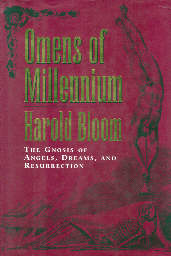Satire in the Global Village
By Dan Geddes[1]
From the talk, “Satire in the Global Village” given at the Institute of General Semantics’ symposium on “Language and Reality” on October 3, 2015 at the Princeton Club in New York.
First published in Anekaant: A Journal of Polysemic Thought No. 5, 2016-17 (Spring)
Contents
1.3. Satire in the Global Village
2.1. What is the meaning of a satire?
2.2. Satire and Genre – Multiple Levels of Meanings
2.3. Satire and General Semantics
2.3.1. Satire and Time-Binding.
2.3.2. The Anxiety of Influence
3.2. Satire and AI: Artificial Intelligence
Abstract
The techniques of general semantics can be well applied to the study of satire. The use of irony and double entendre in satire leads to ambiguous or indeterminate meanings. While in earlier ages, satire was intended mainly for one culture, in the Global Village, there are fewer common social and linguistics norms to serve as a basis for interpretation within the global audience. The literary and cultural allusion common to satire is a form of time-binding and it assumes audience knowledge. Genre boundaries and other conventions are less determined in an international context, yet the satirical mode can appear in any genre. Satirists share many characteristics with General Semanticists, including skepticism toward generalizations, certainties and dogma; refutations of Aristotelian identity claims; and the exposure of imprecise language-use. The contemporary Global Village is Orwellian in nature with its degradation of political discourse and the use of artificial intelligence to detect irony. Satire remains on the front lines in the battle of freedom of speech.
Keywords: satire, parody, irony, global village, general semantics, time-binding, intentional fallacy, McLuhan, 1984, anxiety of influence
1. Introduction
1.1. Satire and Semantics
“…it is only that which has no history, which can be defined.” –Nietzsche (Nietzsche 2006, 53)
I applaud General Semantics for its benevolent attempt to apply the insights of the great philosophers of language to the practical problems of everyday life. General Semantics is a philosophy that is not only trying to make metaphysical or epistemological points, but rather to raise awareness of how semantic formulations affect human outlook, behavior, and potential.
This sensitivity to semantics is critical when studying satire, which by its very nature doesn’t offer straightforward propositions or statements of fact, but rather ironies, double and triple meanings, indeterminate meanings, understatement, exaggeration and other offhand techniques.
Satire sometimes operates at the extremes of comprehensibility, and of acceptability, whether legal, moral, or ethical. Satire and irony can represent a special kind of political action and may become one the last modes of discourse to be mastered by artificial intelligence.
All of the problems in understanding satire apply even when operating within one’s own nation-state or culture. These difficulties in understanding are further complicated when operating globally, where people of different native languages, grammars, traditions, canons, and value systems may read satires from Western countries, perhaps over the internet, perhaps using a Google Translation with all of its imperfections, and perhaps not understanding all of it.
Satire, as for many “literary” texts can be hard for anyone to understand. It often requires a significant “delay” before determining its meaning, and so is suitable for study. Satire is an allusive mode or genre, whether to actual events or other texts, and so it relies heavily upon the audience’s historical memory. It can be satisfying to re-experience the emotion, to recollect in tranquility (through the powers of abstraction) the sometimes visceral effect that the most effective satire has had on you.
1.2. Satire is Topical
“It’s not easy figuring out where the red line is for satire anymore.” –Gary Trudeau (Trudeau 2015)
Satire is a topical subject these days.
Many believe that mainstream investigative journalism is not as strong as it once was, and therefore in the relative void of critical commentary on social justice, satire has emerged as an ever-more important mode of conveying criticism about current events, and government and corporate power.
The sixteen year run of The Daily Show with Jon Stewart was remarkable for the sheer number of people relying upon it as a primary news source. (Phillips 2015)
Stephen Colbert had an enormous impact playing a satirical character, and even bringing that character into the “real” political world by running for office himself (at least briefly), and his forays with Jon Stewart into at least the quasi-political realm via their SuperPac and their March for Sanity on Washington in 2010.
1.3. Satire in the Global Village
“Most of my writing is Menippean satire, presenting the actual surface of the world we live in as a ludicrous image.” –Marshall McLuhan (McLuhan 1987, 517)
“Our language can be seen as an ancient city; a maze of little streets and squares, of old and new houses, and of houses with additions from various periods; and this surrounded by a multitude of new boroughs with straight, regular streets and uniform houses” –Wittgenstein (Wittgenstein 2010, §18)
“Global village” is a term, like any term, which will fail to have a precise meaning. For me the term denotes simply “the world,” but “global village” connotes or suggests other associations, such as:
- globalization;
- the Internet;
- McLuhan’s conception of the global village as a diverse place, not necessarily a collection of tranquil nation-states;
- the differences in satire different countries (which of course is still general): SatireUSA, SatireUK, SatireIran,
- the late Wittgenstein’s language-as-a-city formulation in Philosophical Investigations, which leaves the impression of a human microcosm with all of its possibilities.
If language is like a city, then even if there is a neighborhood of satirists working, we know that the satirical spirit, the satirical mode of tone, motivation, techniques, and illustrious history, is at work in all the workshops and rooms of the city, even if not always presented in the shape or genre of a satire, or with a satire label.
The Global Village is just a metaphor for a globalized world, modeled on a city, divided into major suburbs representing different workshops of semantic formulations. The global village is more like a global jungle, as there are many unmapped terrains. The global village also contains the internet as its primary information bazaar. Thus, it also is home to the NSA, other intelligence agencies, and hackers.
While the term “global village” is associated with McLuhan, for me it conjures up an image more inspired by Orwell’s 1984, perhaps the greatest satirical work of the 20th century (assuming you classify it as a satire, as well as a dystopia). The world is globalized as never before, and structured in something like three great regional blocs as in 1984. People are occupied with their Telescreens like never before, even happily carrying their around in their hand or in their pockets, and even standing in line for hours to buy the latest model.
Our own Newspeak is defined by techniques such as extreme political correctness, over sensitivity to micro-aggressions, and trigger warnings; topics become taboo and word choices prescribed.
The satirist acts as a sort of general semanticist of public hypocrisy, and political malfeasance, including especially deceptive political rhetoric.
1.4. The Purpose of Satire
“Satire flourishes in a homogenous society with a common conception of the moral law…and in times of relative stability and contentment.” –Evelyn Waugh (Feinberg 1965, 292)
If the satirist’s intent is often to comment upon a society’s values, the satire may not be appreciated in times of grave danger or high seriousness. Thus, satire may be considered something of a luxury commodity.
Satire often attempts to explore these terra incognita: What is forbidden to talk about? And why? And what does that show us about the power structure or value systems? Where are the ever-shifting lines?
These and similar questions are good sources for new satirical material. Even if a satire’s subject is not obviously topical, the satire will likely use contemporary value systems to judge past, future, or contemporary events. This makes the genre of satire akin to utopia, dystopia, science fiction, and prophecy among other genres.
Satire, perhaps more than other genres, satire assumes a shared body of knowledge that will be referenced, parodied, and satirized over and above the main lines of the story.
1.5. Satire as Genre and Mode
Satire is both a genre and a mode. There are too many great examples from the satire genre to mention here, but some of the greatest are the works of the major Roman satirists, such as Juvenal and Horace; Jonathan Swift (who interestingly termed himself an “ironist” rather than a satirist), especially his Gulliver’s Travels, A Modest Proposal, and A Tale of the Tub; the great English satirists, such as Dryden and Pope; the great French satirists, such as Molière and Voltaire; the great American satirists, including Mark Twain; and George Orwell whose 1984 stands as one of great satires of the 20th century.
These are but a few drops in the ocean of satire. But satire is also a mode within works that aren’t usually classified as satires. From The Bible, consider Genesis and Exodus with impish Yahweh toying with his human creatures; or The Book of Job; or the story of Jonah. Some believe that the Book of Esther and even the Book of Revelations should be read as satires. Within English literature giants such as Geoffrey Chaucer and Charles Dickens, often worked in a satirical mode. Lewis Carroll’s Alice’s Adventure in Wonderland and Through the Looking-Glass (one of the most quoted work in English literature), while not usually categorized as satire, clearly work in a satirical mode. And perhaps the greatest living American novelist, Thomas Pynchon, while often considered a post-modern novelist, is perhaps best categorized as a Menippean satirist. (Kharpertian 1990).
2. Satire and Semantics
2.1. What is the meaning of a satire?
“Sometimes, as in tragedy and satire, we seem to be looking at a world more devoted to suffering or absurdity than we ordinarily know.” –Northrop Frye (Frye 1964, 97)
Satires offer rich opportunities to search for meaning. A work of satire typically contains multiple levels of meaning by design. In this sense, satire can often resemble an allegory; for some works you can draw up a table of correspondences of what people and events in the satire stand for.
But a satirical work as a whole may or may not have any definitive literal or figurative meaning. Often it isn’t a roman-à-clef where it can be definitively determined what the piece means, or what the author intended. It can be ultimately indeterminate. Satires are often more evocative, with more emphasis on connotation than on denotation. The satirist may work by insinuation.
We ask of any literary work: What does it mean? Satirical works often contain not only a literal story, but at the same time a commentary on other things, potentially anything. The satirist has a deliberately playful attitude toward the subject, and uses sophisticated rhetorical and narrative techniques.
Satire is said to have a moral sensibility, a strong sense of values–ethical, political, aesthetic, or moral, etc. Another layer of meaning comes from the implicit referencing of a moral framework, whether of Christianity, humanism, etc.
Satire points out the incongruities/absurdities in political speech, and represents a sort of last bastion of free speech, along with other forms such as standup comedy.
(Extreme) satire tests cultural norms and limits, and highlights cross-cultural meanings and differences in taboos, as seen in the Charlie Hebdo killings, where the French satirical tradition of “nothing is sacred” collided with violent extremism.
2.2. Satire and Genre – Multiple Levels of Meanings
“Swift disoriented his readers by confusing the genre signals: critical tradition has taught us to call Gulliver’s Travels and A Modest Proposal ‘satires,’ but new readers were led to think the former a travel-book, the latter a projector’s pamphlet, and were increasingly vexed as they turned the pages and found these conventions less and less helpful, which was part of what Swift intended.” –Hugh Kenner (Wilson 1988, 68)
What is the meaning of satire? How do we even know something is a satire?
A satirical work is free to use, imitate or parody any narrative convention or technique from any type of work, giving satirists great freedom to roam across genre boundaries.
Some satirists revel in this freedom by freely mixing genres, where the reader actually enjoys the author’s freedom, and reads on more for what the writer will write next, rather than what will happen next in the story, as in the many of the novels of Thomas Pynchon.
The classic movie Citizen Kane is arguably another example of a multi-genre satirical work: biopic, news reel, fast-talking screwball comedy, newspaper comedy, bad opera movie, and several others. (Kael 1994, 237)
A satire can span genres, but it also contains multiple levels of meanings even within a uniform work.
For those who would classify Animal Farm as a satire, there are at least three layers of meaning: 1) the literal story of the animals’ revolt; 2) the obvious parallels to the Russian revolution (Napoleon and Snowball and Stalin and Trotsky) and 3) Orwell’s commentary on totalitarianism (or political power) in general.
Sometimes when we first detect the presence of irony in a work or performance, it can be unsettling to realize that what is said is not what is meant. What is meant is not always the opposite of what is said, but it is something other than what is said. This can make satire extremely allusive and readers/viewers/consumers of a satirical work may not understand the references or the genre play at work, making many satires difficult to understand. Some satirical works have an almost formulaic or superficial storyline (following the satirized genre) making it easier for the viewer to understand the main story.
2.3. Satire and General Semantics
“ . . . And although they are dextrous enough upon a piece of paper in the management of the rule, the pencil, and the divider, yet, in the common actions and behaviour of life, I have not seen a more clumsy, awkward, and unhandy people, nor so slow and perplexed in their conceptions upon all other subjects, except those of mathematics and music. They are very bad reasoners, and vehemently given to opposition, unless when they happen to be of the right opinion, which is seldom their case. Imagination, fancy, and invention they are wholly strangers to, nor have any words in their language by which those ideas can be expressed; the whole compass of their thoughts and mind being shut up within the two forementioned sciences.”
–Jonathan Swift, Gulliver’s Travels, A Voyage to Laputa
–Epigraph to Science and Sanity by Alfred Korzybski (Korzybski 1994)
Satire shares some of the qualities of General Semantics:
- Satire and General Semantics share skepticism toward generalizations and general statements (in general) or those who make generalizations, such as jingoistic governments, or corporate advertisers. Or moral absolutists, such as religious fundamentalists. (But I’m not generalizing about the generalizing activities of any of these groups; some generalize and some do not.)
- Satire and General Semantics share a perspective of seeing reality as intrinsically multi-faceted and not easily reduced to definitive statements.
- Satire is more likely to refute Aristotelian identity claims (“is” statements) as untrue rather than to affirm them. Additionally, the satirist (as a moralist) is likely to use modals: “This should…” “This could be…” “This must not be…” “This can be…”
- The Satirist is (often) an opponent of dogma, or accepted certainties, as are general semanticists. Satire may attempt to destabilize accepted norms and certainties. When a satirist sees the unjustified certainties of others, or of a society, he or she sees material for the next satire. Satirists contradict and reduce to absurdity more than they affirm or assert.
- Satire has an affinity with general semantics in wanting to point out the imprecise use of language, the confusion of word and object, the illusion of permanency that words gives us, and the failure of people to apprehend the dynamic nature of reality.
- Experiencing a satire often induces a delay – not necessarily a Korzybsian delay – while readern evaluates its meaning. The reader must evaluate the dramatic moment against his or her entire cultural heritage, and this abstracting can take time.
- While a satirical text is processed on the verbal level, the harsher forms of satire may intend to hit the reader on various levels–intellectual, moral, emotional, visceral.
- A satirist tries to foster moral reflection and also to persuade. When people laugh together it brings them together, makes them feel part of a group. So a satirist who can get people laughing at the same thing can shape public opinion.
- If General Semantics is a practice; political satire is a form of action. Yet the satirist is not a total skeptic. He or she believes usually in some moral framework, one that is hopefully shared with many readers. If the satire is aimed at the injustices or hypocrisy within the political system, then the satire serves as a “counter-narrative” to the dominant narrative established by the organs of major media (Hill 2013), which many, such as journalist Carl Bernstein have asserted, have long been heavily influenced or even controlled by Intelligence. (Bernstein 1977)
- Nearly all fiction, including satire, shows character change, illustrating the difference between characterstart, characterclimax, and character end.
- For satirists “the map is not the territory.” Satirists routinely point out the discrepancies in the use of language to describe mainstream “reality.” For example, political “consensus reality” is largely the construct of a handful of media companies. Political broad strokes such as Red State / Blue State are ridiculous generalizations far removed from the realities on the ground. Satirists are the ones who ultimately say: The Emperor Wears No Clothes! Things are not what they are claimed to be.
- Satirists would benefit if society as a whole embraced some of the key principals of general semantics, including developing a Korzybskian structural “delay” before interpreting/evaluating the speech of others (or taking offence when none is needed, etc.) It would be generally beneficial if people allowed time for a delay before becoming mortally offended by others’ free speech. Delaying interpretation encourages empathy, which is the goal of many satirical works.
2.3.1. Satire and Time-Binding.
“It has been said words are the only things which last forever.”
–Winston Churchill (Churchill 2012)
Literary allusion is a form of time-binding. A writer who uses allusion expects that readers will be familiar with precursor texts or historical references, at least to understand a secondary meaning.
So, perhaps more than other works, satires require the reader’s knowledge of specific historical or political events, or specific (precursor) literary works being alluded to. This is another reason why satire can seem “elitist” and difficult to get.
Older satires, like Gulliver’s Travels, require footnotes and annotations to inform the reader who the author’s satirical targets were among the political thinkers and philosophers of his day.
2.3.2. The Anxiety of Influence
If a satirical writer has read earlier writers deeply, he or she may have conflicted feelings about the influence of the precursor writer on his or her works, or the fact that everything has already been said, that he or she is not original. (Geddes 1999) Perhaps such writers experience what literary critic Harold Bloom termed the anxiety of influence. (Bloom 1973, 14) General Semanticists maybe would call this “the anxiety of time-binding.”
So the satirist may be freeing himself from the tyranny of his or her literary forebears, perhaps by “swerving” from them, showing that he or she is free from the influence of the earlier artist. The “swerve” from the precursor writer may take many forms, including of homage, respect, allusion, or even parody. Irony, of course, is a special kind of swerve.
If for Bloom, the young poet, the ephebe, swerves from the precursor poet due to the anxiety of influence, so does the satirist in a struggle to swerve either from the source material, or the real event that inspired the satire. Satire swerves from reality, as in the anxiety of influence.
2.4. Example: 1984
Orwell’s 1984 is, as for so many reasons, an interesting work to study. It has meant different things to different generations: 19841948 19841984 19842015. How will 19842050 look?
1984 may be the greatest satire of the 20th century. George Orwell casts one of the largest shadows of the 20th century literary giants, his central memes and ideas reaching more people than Joyce, Proust or Eliot.
Orwell intended 1984 as a commentary on contemporary trends in the West, as well as in the Communist World. But its genre is difficult to classify. Is it dystopia, prophecy, satire, or all of the above? In many ways it reads like science fiction.
Most people don’t find 1984 particularly funny. 1984 keeps a straight face.
And yet there is black comedy, such as in the names of the Ministry of Truth, or the Thought Police, or the double-speak slogans like “Freedom is Slavery” and “War is Peace”. Other antics of semantic life under Big Brother can be seen as black comedy, such as Winston Smith’s role in the rewriting of history. (Orwell 1948)
1984’s main lesson is about the political misuse of language. If language is already inherently too limited to properly capture reality, then the Party’s Newspeak program to reduce the complexity of human thought by abusing and eliminating words is an effective and chilling commentary on the power of the elites over the human mind.
1984 also offers us a global vision, showing us three monstrous regional powers colluding in war (or perhaps fake wars) in order to oppress their respective populations. His depiction of the world divided into the three great regional blocs seems uncannily prophetic to many.
2.5. Audiences/Readers
It has been said that the first rule of rhetoric is to know your audience.
Not only does satire assume sets of knowledge on the part of the audience, as a form, it has multiple possible audiences/readers:
- Readertarget – This is the “butt of the joke” (person, idea, human nature, etc.) The “target” of the satire may or may not be part of the intended audience. As in an “open letter” to a prominent personage, the satirist may assume that the “target” may read/experience the satire firsthand, and the satirist may even hope that the satire will shame the target individual (or groups) into behavior modification. Arguably, this is one of the most important audience members, as the “target” is in a position to modify his or her behavior. (Obviously, if the satirist is satirizing human nature itself, then all members fall into this category.)
- Readergeneral public – The “general public” here means, traditionally, within the nation-state or cultural group. The “general public” can perhaps put more pressure on other satirical targets to change.
- Readerglobal – This could be anyone (via Internet, via Google translate, etc.) Satire is even difficult to comprehend across two countries using the same language (US vs. UK English, or within different regions within the US.) With an international audience it is difficult to know whether it will be understood, taken to be funny, or taken to be taboo.
- Readerfuture – The satirist may be “chronicling” his own time for future audiences. The satirist may wish it to be known that while the people of his or her day were clueless to his critique, s/he wants it to be on the record that someone from the cultural milieu was aware of the injustice to which the satire is addressed.
- Readersatirist – The satirist himself/herself. Let’s face it, sometimes literary productions or jokes are primarily for the amusement of the creator, who may or may not be bothered if the general public appreciates the full import of his satire or not.
- Readeraneiron – This is literally the one without irony (especially Socratic irony); the person who doesn’t get the joke. The aneiron can play an important role in unifying those who do get it. (O’Hehir 2015)
- Readercensor – Hopefully, in a repressive society, the person who doesn’t get the joke is also the censor.
3. Satire and Freedom of Speech
3.1. Satire and Censorship
“Satire which the censor understands deserves to be banned.”
–Karl Kraus (early 20th century Viennese satirist) (Elliot 2015) (Franzen 2013)
Satire enjoys a special status as a way to express views that would be difficult or even illegal to express via straight modes of discourse. It’s not always been the case, nor necessarily always will be. Satire has not been given a free pass in all cultures of course. The Romans banned satire at one point, as did the English during the Bishop’s ban of 1599. (Hill 2013)
In the U.S. today, there is little overt censorship of satire. Controversial satirical speech is more likely to be self-censored or attacked via civil litigation than censored by the government.
Within a corporate controlled state like the U.S., we face the prospect that speaking ill of corporations, in a manner that could cause the loss of expected profits, could one day be used to suppress satirists (as well as other writers). New proposed trade agreements such as the Trans-Pacific Partnership may end up contain provisions changing longstanding norms of copyright protections and fair use. (Rossini 2012) So satirists are prudent to fictionalize all company names (as novelists do).
The university of course is not a bastion of free speech in this regard. Trigger alerts, fear of micro-aggressions, and other forms of political correctness limit freedom of speech from the “left”. Some standup comedians, including Chris Rock and Jerry Seinfeld are avoiding performing at colleges and universities due to the easily offended student bodies.
3.2. Satire and AI: Artificial Intelligence
Satire may find itself having to outwit artificial intelligence, at least as long as it can, for several reasons. One is that futurists and Singularity enthusiasts (those who believe robots will surpass human intelligence) assure us that AI systems are already capable of writing perfectly good novels, probably with better constructed plots than many a human novelist.
Whether or not that is true, AI is still mainly literal in its understanding of speech. Just as years ago people prided themselves that a computer would never beat a Chess Grand Master (and of course now the computer can win all the time), now satirists and ironists of all stripes can still console themselves with the thought that the robots who will soon be surrounding us and taking our job will be tin-eared and unable to detect the clever ironies of humans — at least for a while.
Maybe the use of irony punctuation marks, which were in use as long ago as the 17th century, will make a comeback to help our new robot masters.
Satirists may also have to evade the AI Censor—which conceivably could become a great AI system trolling the Internet for signs of dissent. (Or maybe that’s Google!)
Facebook has toyed with the idea of letting users overtly tag satirical news articles so that the unwitting are not fooled.
So, instead of artfully evading the (human) censor, satirists may have to learn to evade AI detection to have presence on major social media. Who knows, maybe someday people will even sue Facebook for “offensive” things that users post there, and so Facebook will have to preemptively use AI to nip any potentially litigious posts in the bud. The US Secret Service has requested bids for software that can detect sarcasm in Twitter tweets. (Pauli 2014)
In the Internet Age, perhaps there is so much information that it won’t really be necessary for repressive governments to censor satire. In this respect, our society is more like Huxley’s Brave New World with its information overload then like Orwell’s 1984. (Huxley 1946) Many of us are drowning in so much information that we are effectively paralyzed from political action. Backwater blogs can write almost anything and are not deemed a threat. It is enough to merely not amplify views with major media, such as Social Media now is, for it to be largely ignored and to have marginal effect.
In any case, if the people who believe in the Singularity are correct, satire won’t really help us if there is ever a struggle against our new robot masters. Satire can only convince other people of the dangers before it is too late.
4. Conclusions
Writing satire in the global village can be challenging. It’s a jungle out there filled with NSA, hackers, terrorists, lawyers, and easily offended college students.
The global village is the world, including especially the internet, a world of telescreens that we carry in our pockets on behalf of Big Brother, and of starkly different ideologies. And yet the technology exists that almost anybody can read almost anything. Context is lost. Longstanding cultural assumptions are now dubious at best.
Satirists and General Semanticists share many affinities, especially an acute realization of the limits of language to capture the flux of reality; and so they share a will to sharpen one’s eyes and ears and to keep one’s mind open.
While we can expect further attempts to limit satire and free speech, whether from political correctness, corporate control, fundamentalists, etc., satire remains a genre and a mode within any genre, for keeping the spirit of free speech alive.
Works Cited
Bernstein, Carl. “The CIA and the Media.” Rolling Stone, October 20, 1977.
Bloom, Harold. The Anxiety of Influence: A Theory of Poetry. New York: Oxford University Press, 1973.
Burke, Kenneth. A Grammar of Motives. Berkely: University of California Press, 1945.
Churchill, Winston. Churchill in His Own Words. Edited by Richard M. Langworth. London: Ebury Press, 2012.
Elliot, Robert C. “The satirist, the law, and society.” Encyclopedia Britannica. July 4, 2015. http://www.britannica.com/art/satire/The-satirist-the-law-and-society (accessed August 7, 2015).
Feinberg, Leonard. The Satirist. New York: The Citadel Press, 1965.
Franzen, Jonathan. The Kraus Project. New York: Farrar, Straus, and Giroux, 2013.
Frye, Northrop. The Educated Imagination. Bloomington: Indiana University Press, 1964.
Geddes, Dan. “Harold Bloom’s Anxiety of Influence.” The Satirist. October 5, 1999. http://www.thesatirist.com/books/anxiety_of_influence.html (accessed September 28, 2015).
Hill, Megan R. “Developing a Normative Approach to Political Satire: A Critical Perspective.” International Journal of Communication, 2013: 324 – 337.
Huxley, Aldous. Brave New World. New York: Bantam Books, 1946.
Kael, Pauline. “Raising Kane.” In For Keeps: 30 Years at the Movies, by Pauline Kael, 237. New York: Plume, 1994.
Kharpertian, Theodore D. A Hand to Turn the Time: The Menippean Satires of Thomas Pynchon. Rutherford: Fairleigh Dickinson Univ Press, 1990.
Korzybski, Alfred. Science and Sanity. 5th. Brooklyn: Institute of General Semantics, 1994.
McLuhan, Marshall. The Letters of Marshall McLuhan. Edited by Matie Molinaro, Corinne McLuhan and William Toye. Toronto: Oxford University Press, 1987.
Nietzsche, Frederick. On the Genealogy of Morals. Edited by Keith Ansell-Pearson. Translated by Carol Diethe. Cambridge: Cambridge University Press, 2006.
O’Hehir, Andrew. “Fox News is half-right about Jon Stewart: How the brilliant satirist of the Bush years has been undone by his BFF in the White House .” Salon. August 7, 2015. http://www.salon.com/2015/08/06/fox_news_is_half_right_
about_jon_stewart_how_the_brilliant_satirist_of_the_bush_years_has_been
_undone_by_his_bff_in_the_white_house/ (accessed August 15, 2015).
Orwell, George. 1984. New York: Harcourt, Brace and Company, Inc., 1948.
Pauli, Darren. “Oh, wow. US Secret Service wants a Twitter sarcasm-spotter.” The Register. June 4, 2014. http://www.theregister.co.uk/2014/06/04/secret_service_wants_twitter_sarcasm_radar (accessed July 6, 2015).
Phillips, Amber. “Many millennials are about to lose their most-trusted news source: Jon Stewart.” The Washington Post. July 30, 2015. https://www.washingtonpost.com/news/the-fix/wp/2015/07/30/jon-stewart-will-leave-plenty-of-millennials-in-search-of-a-new-way-to-get-their-news/ (accessed August 2, 2015).
Rossini, Carolina. “New Leaked TPP Text Puts Fair Use at Risk .” Electronic Freedom Foundation. August 3, 2012. https://www.eff.org/deeplinks/2012/08/new-leaked-tpp-puts-fair-use-risk (accessed September 4, 2015).
Trudeau, Gary. “The Abuse of Satire.” The Atlantic. April 11, 2015. http://www.theatlantic.com/international/archive/2015/04/the-abuse-of-satire/390312/ (accessed June 9, 2015).
Wilson, Robert Anton. Coincidance. Tempe: New Falcon Publications, 1988.
Wittgenstein, Ludwig. Philosophical Investigations. New York: John Wiley & Sons, 2010.
[1] Dan Geddes is the author of The Satirist: America’s Most Critical Book and the editor of The Satirist (www.thesatirist.com). The Satirist, one of the Internet’s longest running literary satire sites, has been cited in books, academic journals, periodicals, dissertations, as well as university and high school curricula in several countries for its satire and criticism. Geddes is a graduate of Ohio University’s Honors Tutorial College, where he received B.A.s in Philosophy and History, and was named the Outstanding Graduate in History. He later studied in Ph.D. programs at Indiana University (Philosophy) and Case Western Reserve University (History) before turning to creative writing. He now lives in Amsterdam.











Be First to Comment